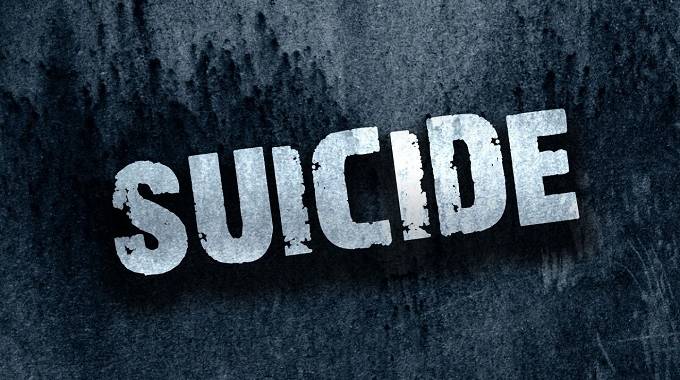Health:Mental health in adolescents, suicidal trends a call for help

Andile Tshuma
Suicides are becoming a worrying trend and it seems as though society is short of answers and solutions to the problem. Suicide is often a desperation measure after failed pleas for help.
Well, it is a staggering fact that most Africans do not believe in therapy or seeking professional help when going through problems and this contributes to poor mental health.
It is sad that we only think that it’s only those admitted into mental health institutions who suffer from poor mental health. Mental health is as important as any other health dimension.
There are seven health dimensions which lead to total health and wellness and these are physical, social, psychological, spiritual, environmental, emotional and professional or career.
We all need to ensure that our health is at its best across all the dimensions so as to achieve total wellness.
President Mnangagwa called on Zimbabweans to shun stigmatisation of mental health and mental health conditions and urged communities to get educated on mental health and to support those suffering from mental health issues.
“Today is #WorldMentalHealthDay. As an open-minded and loving people, let us all work to remove the stigmas, educate ourselves and support those around us who suffer from mental health issues. I
n our new Zimbabwe, as we move forward, let no one be left behind #WMHD2018,” tweeted the President recently.
Sometimes people take for granted that mental illness and suicidal thoughts can affect someone of any age, from any background, at any time.
Similar to physical illnesses, people do not choose to have mental health problems and need the appropriate care to get better.
Mental illness and suicidal thoughts are common among teenagers and it can be difficult to know if a child is suffering from it as they often keep it to themselves.
Last year, a 14-year-old Townsend High School pupil committed suicide after her mother told her to do her schoolwork before watching television.
Nomakhwezi Nkomo hanged herself with her younger brother’s belt from a screen door at their Sunninghill suburb home in Bulawayo.
It is believed she could have been depressed but failed to articulate her feelings resulting in the suicide.
Before the suicide, her mother, Mrs Mendo Nkomo had told her to polish her school shoes and write her homework before watching television soap opera, Generations.
Her younger brother is said to have been the first to find the body at around 9PM.
Following the tragic incident, Nomakhwezi’s family went through counselling sessions with Contact Family Counselling Centre, after her father, Mr April Nkomo, appealed for professional counsellors to assist his family to deal with the loss through psychotherapy.
Seeking counselling services is a rarity in African society, but Mr Nkomo said he felt it was necessary in aiding his family through the grieving process.
He described Nomakhwezi as a gentle, reserved and obedient child, who was responsible as the eldest child and always took care of her younger brothers.
“I’m failing to sleep of late as I’m trying to figure out where we could’ve failed as parents because as far as I’m concerned, all was well in the home. My daughter was a bubbly, obedient and brilliant girl. Before the suicide, she was generally her usual self. She was reserved and quiet at times, so I’m beginning to wonder if something was eating her up all this time and I knew nothing about it,” said Mr Nkomo.
Adolescence and the early years of adulthood are a time of life when many changes occur, for example changing schools, leaving home, and starting university or a new job. For many, these are exciting times.
They can also be times of stress and apprehension, however. In some cases, if not recognised and managed, these feelings can lead to mental illness.
The expanding use of online technologies, while undoubtedly bringing many benefits, can also bring additional pressures, as connectivity to virtual networks at any time of the day and night grows.
Many adolescents are also living in areas affected by humanitarian emergencies such as conflicts, natural disasters and epidemics. Young people living in situations such as these are particularly vulnerable to mental distress and illness.
According to the World Health Organisation, half of all mental illness begins by the age of 14, but most cases go undetected and untreated. In terms of the burden of the disease among adolescents, depression is the third leading cause.
Suicide is the second leading cause of death among 15 to 29-year-olds.
Harmful use of alcohol and illicit drugs among adolescents is a major issue in many countries and can lead to risky behaviour such as unsafe sex or dangerous driving. Eating disorders are also of concern.
Fortunately, there is a growing recognition of the importance of helping young people build mental resilience, from the earliest ages, in order to cope with the challenges of today’s world.
Evidence is growing that promoting and protecting adolescent health brings benefits not just to adolescents’ health, both in the short- and the long-term, but also to economies and society, with healthy young adults able to make greater contributions to the workforce, their families and communities and society as a whole.
Much can be done to help build mental resilience from an early age to help prevent mental distress and illness among adolescents and young adults, and to manage and recover from mental illness.
Prevention begins with being aware of and understanding the early warning signs and symptoms of mental illness.
Parents and teachers can help build life skills of children and adolescents to help them cope with everyday challenges at home and at school.
Psychosocial support can be provided in schools and other community settings and of course training for health workers to enable them to detect and manage mental health disorders can be put in place, improved or expanded.
Investment by governments and the involvement of the social, health and education sectors in comprehensive, integrated, evidence-based programmes for the mental health of young people is essential.
This investment should be linked to programmes to raise awareness among adolescents and young adults of ways to look after their mental health and to help peers, parents and teachers know how to support their friends, children and students. Families should be more supportive and understand that today’s teenager is a different kind of child.
Children nowadays have become more vulnerable and are exposed to all sorts of cultures, while spoiling them rotten is not advised, different parenting approaches may be tried such as increasing on communication and using different communication strategies on them.
We all need to take good care of our mental health as Zimbabweans as most, if not all, of our functioning stems from our mental health.










Comments